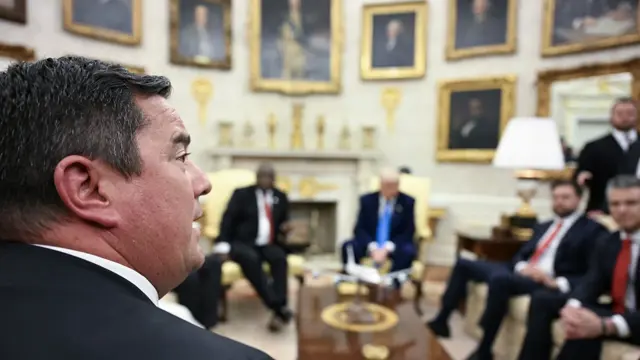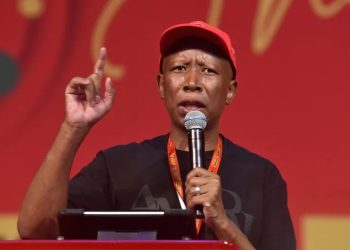Democratic Alliance (DA) leader John Steenhuisen has revealed his party’s strategic calculus behind joining South Africa’s Government of National Unity (GNU), telling U.S. President Donald Trump that the move was necessary to prevent what he described as the “dangerous rise” of the MK Party and Economic Freedom Fighters (EFF).
During high-level discussions at the White House, Steenhuisen framed South Africa’s political crossroads in stark terms, arguing that allowing either the MK Party or EFF to gain power would risk “economic collapse and democratic backsliding.” His comments underscore the DA’s self-positioning as a constitutional bulwark against more radical forces in South African politics.
The DA leader’s warning comes amid heightened global attention on South Africa’s political stability, with both the EFF and MK Party gaining traction through their demands for accelerated land reform and economic transformation. Steenhuisen emphasized to Trump that the GNU arrangement creates a critical firewall against policies he characterized as “investor-hostile” and “institutionally destructive.”
Political analysts note the significance of Steenhuisen delivering this message directly to the U.S. president, suggesting an effort to align South Africa’s opposition with Western democratic interests. His remarks implicitly frame the 2024 elections as a contest between constitutionalist and radical factions, with the DA presenting itself as the last line of defense for market-friendly policies.
However, critics argue this binary characterization oversimplifies South Africa’s complex political landscape, where frustration with the status quo has fueled support for more radical alternatives. The EFF and MK Party have dismissed such warnings as scare tactics, maintaining their policies address longstanding inequalities.
As the GNU navigates its fragile coalition, Steenhuisen’s transatlantic diplomacy signals how domestic power struggles are increasingly playing out on the international stage. With South Africa’s credit ratings and foreign investment hanging in the balance, the DA appears determined to cast the political contest as one that will determine whether the country remains anchored to Western-aligned governance or charts a more disruptive course.
The White House meeting has brought into sharp relief how South Africa’s internal political tensions are becoming inextricably linked to its global positioning, with opposition leaders now actively seeking international allies in their domestic power struggles.






















